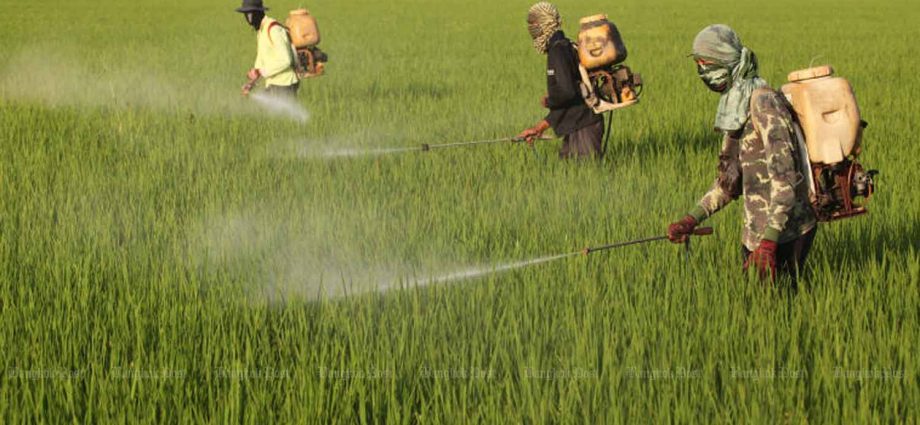Requirement for upfront payment before receiving aid could exclude many farmers

More questions have been raised over the transparency of a planned 30-billion-baht programme aimed at helping cut rice farmers’ operating costs by co-paying their fertiliser expenses.
The programme approved by the cabinet on June 25 is intended to benefit as many as 4.68 million rice farmers nationwide. It is scheduled to run from July 15 until May 3 next year.
Under the co-payment scheme, each rice farming household is promised a subsidy of 500-baht per rai of paddy fields, to a maximum of 10,000 baht.
According to farmers in the northeastern province of Khon Kaen, the scheme looks attractive in theory but is unhelpful in practice because they are required to pay for fertiliser upfront from approved vendors before receiving the promised subsidy.
“Farmers who have no money won’t be able to receive financial assistance and in this economic situation 500 baht is hard to earn,” said Wirat Phosiruang, president of the Sawathi Community Rice Promotion Centre in Ban Nohn Rang.
The government seems to be using farmers as political tools, he said.
The project’s transparency, especially regarding the cost of fertiliser, was also questioned.
“The government’s estimation of fertiliser cost per rai is 1,000 baht. But the real cost could be less than that,” said Mr Wirat, asking where the rest of the promised subsidy per rai would go.
“It would be more practical if the government pays the amount of subsidy directly to farmers and lets them decide where to use the money which would stimulate price competition in the market,” he added.
Without clarity, the scheme prompted more questions that remain unanswered, he said.
Prime Minister Srettha Thavisin admitted during his visit to Si Sa Ket over the weekend that the programme needs revision.
According to government spokesman Chai Watcharonke, the subsidy programme would help the government save about 24.3 billion baht for subsidising rice farming when compared with the budget used in a similar project by the previous government.
However, Mr Wirat said he preferred how the last government’s rice farming subsidy scheme worked because it was simple and truly benefited poor farmers.

